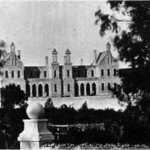
Unwell or Unwanted? The Mental Health of Western Australia’s Convict Population
By Kellie Moss Western Australia welcomed the transportation of convicts in 1850 as a solution to the economic problems which had affected the colony since its foundation as a free settlement in 1829. However, the 1857 Penal Servitude Act significantly altered the kinds of convicts being sent as deportation was discontinued for sentences shorter than […]
Research, Space, and Distance
In June I attended a research seminar at which Professor Joanna Story, Principal Investigator of the Leverhulme Trust funded project, The Impact of Diasporas on the Making of Britain: Evidence, memories, inventions, and Professor Sarah Tarlow, Principal Investigator of Harnessing the Power of the Criminal Corpse project funded by the Wellcome Trust, spoke about […]
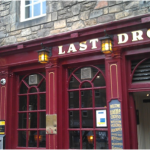
Dating the Social Death of the Eighteenth Century Criminal. By Rachel Bennett
In April 2015 I presented a paper at a conference held at the University of Leicester entitled ‘When is Death?’ The conference was organised by members of the Wellcome Trust funded project, Harnessing the Power of the Criminal Corpse. My PhD has been conducted as part of this project. The conference sought to investigate the […]
Admin, Conference, and Website, Oh My!
In the year since I joined The Carceral Archipelago, it has been a pleasure to support the novel and extensive research being conducted by the project’s members. Our team is conducting research on and about five continents over as many centuries and making exciting connections and discoveries in archives, at heritage sites, and in fruitful […]
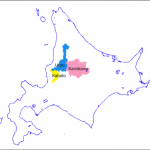
Awful Things Began to Happen: Rapid Change of Ainu Homeland and Convict Labour as Seen by the Ainu, By Minako Sakata
The Kamikawa region is one of areas that today still has relatively a large population of the Ainu. It is also the site of the most famous land dispute between the Hokkaido Government and the Ainu in the early 20th century. The Hokkaido Aborigines Protection Act of 1899, containing some restrictions and leading to many […]
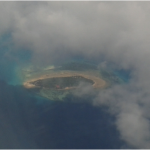
Zanzibar’s Prison Island: The Prison That Never Was, by Sarah Longair
My initial research on peculiar history of Zanzibar’s so-called Prison Island as part of the Carceral Archipelago project began last year delving into the records in the National Archives and the British Library. Relying on Foreign Office correspondence, I was able to piece together some of the original documents of the construction of prison buildings […]

A Promising Future: Convict Voyages to Western Australia by Kellie Moss
During a recent research trip to the State Library of Western Australia I had the opportunity to examine the journal compiled by William Smith, Surgeon Superintendent, on board the Merchantman’s second voyage to the Swan River Colony. [1] Leaving Portland on July 1st 1864, 257 convicted men were transported directly to Fremantle in a voyage […]
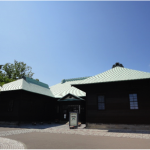
Town Commemorates Convicts, by Minako Sakata
At the end of August, I visited Tsukigata, a small town in Hokkaido where the Kabato Central Prison was located from 1881 to 1919. The town was established in the year when the prison opened, and named after its first director, Kiyoshi Tsukigata. This town has unique sites that show the history of Hokkaido as […]
Announcing the Carceral Archipelago Conference Call for Papers
We are excited to open the Call For Papers (CFP) for the Carceral Archipelago’s upcoming international conference, The Carceral Archipelago: Transnational Circulations in Global Perspective, 1415-1960, to be held in September 2015. Scholars of penal settlements and colonies from all over the world are warmly invited to submit proposals for papers and panels. […]


 Subscribe to Emma Battell Lowman's posts
Subscribe to Emma Battell Lowman's posts
Recent Comments